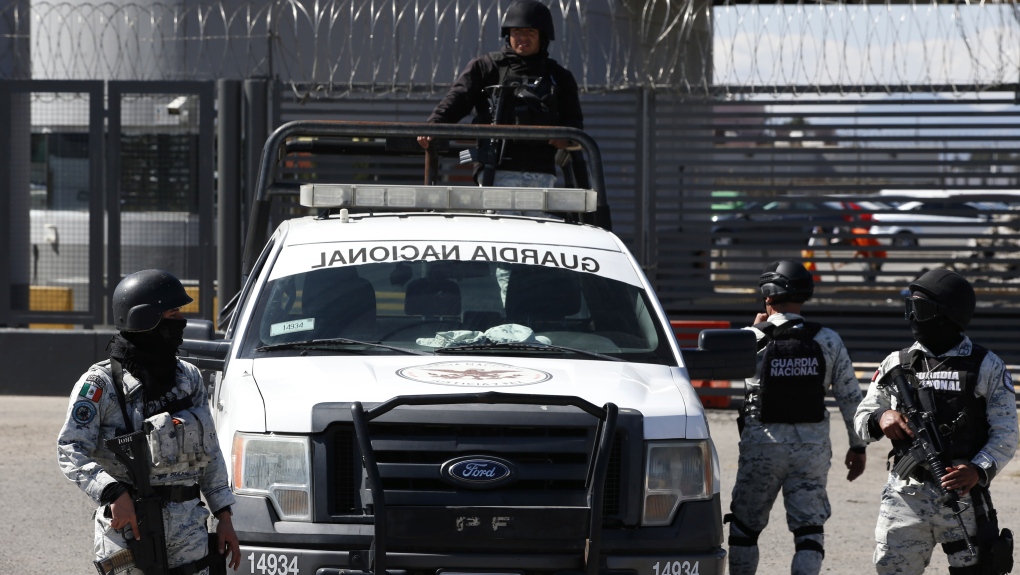
Mexico's arrest of El Chapo's son a gesture to U.S., not signal of change
CTV
Mexico's capture of a son of former Sinaloa cartel boss Joaquin 'El Chapo' Guzman this week was an isolated nod to a drug war strategy that Mexico's current administration has abandoned rather than a sign that President Andres Manuel Lopez Obrador's thinking has changed, experts say.
Mexico's capture of a son of former Sinaloa cartel boss Joaquin "El Chapo" Guzman this week was an isolated nod to a drug war strategy that Mexico's current administration has abandoned rather than a sign that President Andres Manuel Lopez Obrador's thinking has changed, experts say.
Ovidio Guzman's arrest in the Sinaloa cartel stronghold of Culiacan on Thursday came at the cost of at least 30 lives -- 11 from the military and law enforcement and 19 suspected cartel gunmen. But analysts predict it won't have any impact on the flow of drugs to the United States.
It was a display of muscle -- helicopter gunships, hundreds of troops and armored vehicles -- at the initiation of a possible extradition process rather than a significant step in a homegrown Mexican effort to dismantle one of the country's most powerful criminal organizations. Perhaps coincidentally, it came just days before U.S President Joe Biden makes the first visit by a U.S. leader in almost a decade.
Lopez Obrador has made clear throughout the first four years of his six-year term that pursuing drug capos is not his priority. When military forces cornered the younger Guzman in Culiacan in 2019, the president ordered him freed to avoid loss of life after gunmen started shooting up the city.
The only other big capture under his administration was the grabbing of a geriatric Rafael Caro Quintero last July -- just days after Lopez Obrador met with Biden in the White House. At that point, Caro Quintero carried more symbolic significance for ordering a DEA agent's murder decades ago than real weight in today's drug world.
"Mexico wants to do at least the bare minimum in terms of counter-drug efforts," said Mike Vigil, the DEA's former chief of international operations who spent 13 years of his career in Mexico. "I don't think that this is a sign that there's going to be closer cooperation, bilateral collaboration, if you will, between the United States and Mexico."
While capturing a criminal is a win for justice and rule of law, Vigil said, the impact on what he sees as a "permanent campaign against drugs" is nil. "Really what we need to do here in the United States is we need to do a better job in terms of reducing demand."
